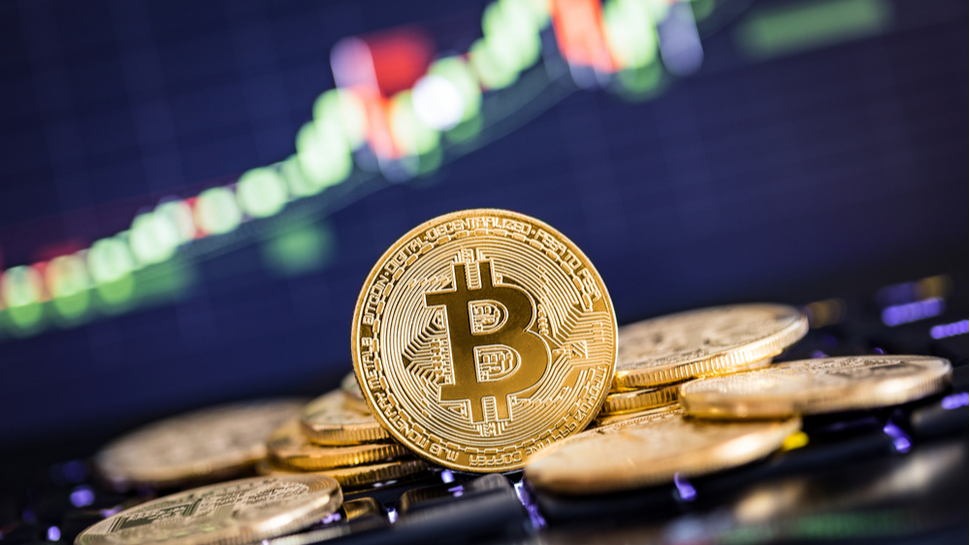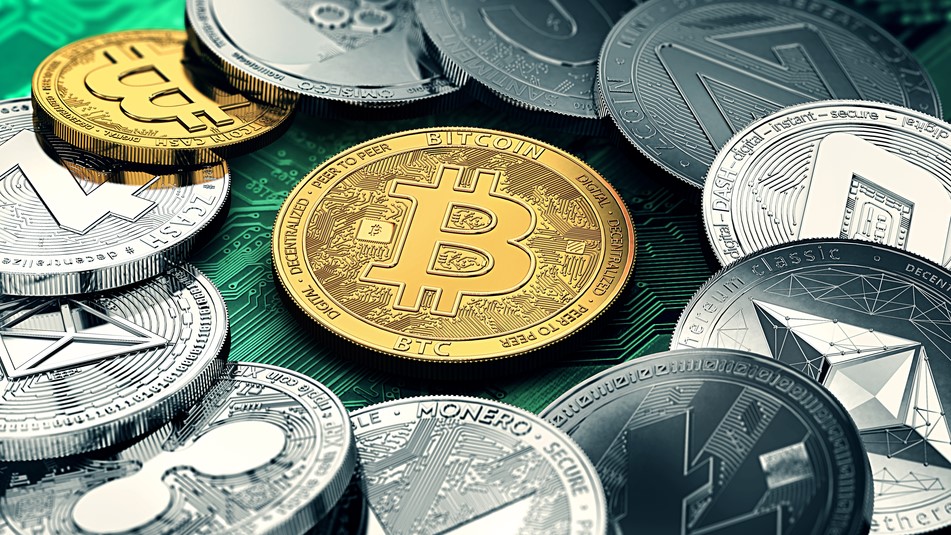Mainstream curiosity surrounding cryptocurrency has ebbed and flowed in recent years, peaking with a colossal rise in the price of Bitcoin ...
Mainstream curiosity surrounding cryptocurrency has ebbed and flowed in recent years, peaking with a colossal rise in the price of Bitcoin in 2017.
However, in recent weeks, the public gaze has diverted back towards crypto as Bitcoin rallies once more. At the time of writing, the world’s most (in)famous cryptocurrency is worth almost $20,000 per coin - a historic all-time high - up from circa $400 just five years previous. That’s a 50x increase in a half decade, gains that traditional stockbrokers and fund managers could only dream of.
People have always been attracted to “get rich quick” propositions, which is exactly what Bitcoin represents for many whose interest has been piqued. Indeed, a select few have been made very wealthy by the phenomenon. And it could be said that this same spirit is what has also drawn us to the pursuit of gambling since time immemorial: the ability to put it all on red and potentially walk away with double the money.
- Check out our list of the best Bitcoin wallets available
- Here's our list of the best Bitcoin exchanges around
- We've built a list of the best mining rigs on the market
Crypto investors typically enter the game with profit in mind, whereas most gamblers are aware the odds are stacked in favor of the house, but the overlap in attitudes to risk suggests a kinship between the two.
In this context, it’s easy to understand the emergence of hundreds of crypto casinos over the past few years, which allow customers to place bets and withdraw winnings in cryptocurrency as opposed to regular fiat money (e.g. dollars, pounds, euros etc.).
Using cryptocurrency, punters can preserve their financial privacy and can also be sure the games are not rigged, because the betting logic is stored on a blockchain - the underlying technology.
However, this new variety of casino also embodies many of the criticisms levelled at the cryptocurrency industry in microcosm: they’re experimental, highly risky and loosely regulated.
So are casinos and cryptocurrency a match made in heaven, or a disaster waiting to happen?

What’s the point of crypto casinos?
Businesses that have sought to apply blockchain (which can be thought of as a distributed database of transactions) to a gambling context typically reel off a familiar series of ostensible benefits.
To understand these fully, it’s important to grasp the basic qualities of a public blockchain:
- Decentralization: no single entity is responsible for greenlighting, verifying and processing transactions (the exchange of data or value)
- Immutability: once a transaction has been verified by a consensus vote and store on-chain, it cannot be altered, deleted or otherwise tampered with
- Auditability: while network participants remain anonymous, all transactions are open to public scrutiny
While these inherent traits open various doors, the transparency built into blockchain systems is likely to be an especially attractive proposition for gamblers, who can be certain that the code underpinning casino games is unbiased and programmed as it should be.
“This means players can verify that the outcomes of games have been fair in real time and haven't been manipulated by the casino or a bookmaker,” explained Lars Rensing, CEO at enterprise blockchain firm Protokol.
“The technology provides a permanent record of verifiable unchangeable transactions, meaning that those businesses using blockchain can demonstrate a fair system for both placing and claiming bets.”

Many crypto casinos are also built on top of the Ethereum blockchain - known as the world computer - which offers the ability to code in “smart contracts”, a type of agreement that is settled automatically when certain criteria are met.
“Smart contacts mean that betting companies can automate a number of processes, including payouts, removing the need for intermediaries to authenticate transactions. This creates a more efficient and secure system, whilst also reducing the costs incurred through intermediaries,” added Rensing.
For various reasons, however, crypto casinos have not exactly taken off. Despite the rise in the popularity of crypto and the mooted benefits of blockchain, browsing through the websites of crypto casinos (many of which popped up after the 2017 Bitcoin bull run) is like walking through a graveyard.
Reviewing a small sample of ten crypto casinos, three were inactive (Bet King, Tombola and Unikoin), one had a broken website (Let’s Bet) and another is the subject of a lawsuit over its $38 million crowd-funding ICO (CashBet).
The picture painted is of an industry in terminal decline, rather than precipitous rise. But why?
A regulator’s nightmare
While the idea behind crypto casinos might appear sound at first, a series of problems soon present themselves. Chief among them: the need for comprehensive regulation.
In the UK, as gambling law specialist Richard Williams explains, regulators are unlikely to even consider licensing crypto casinos, because of difficulties surrounding AML (anti-money laundering) and KYC (know your customer) requirements.
“Adoption of cryptocurrency as a payment method for GB licensed gambling operators has been limited. The Gambling Commission’s license conditions require payments for gambling to come from a regulated payment service provider, so direct cryptocurrency payments other than through regulated wallets are not permitted”, said Williams, who represents a firm called Keystone Law.
“Because of its historical association with money laundering and dirty money (e.g. the Silk Road) regulators are always going to be more wary of cryptocurrency as a payment method.”
However, according to Oliver Scholten, a PhD researcher at the University of York (UoY), the question of licensing is a secondary issue. The enigmatic nature of cryptocurrency and the underlying technology, he says, makes classifying decentralized casinos a nightmare - let alone regulating them.
“Decentralized gambling applications are as powerful as they are dangerous. They introduce decentralization (and therefore decentralized accountability) to a previously centralized industry.”
“Also, because the gambling uses cryptocurrency and not fiat, it’s not clear if it’s legally gambling across different jurisdictions and therefore even needs licensing in the first place.”

This regulatory ambiguity carves out room for services that exist on the fringes of legality, headquartered in territories with loose restrictions, which in turn means that certain checks mandated by law for standard casinos often do not take place.
“In a regular online casino, players typically need to verify their identity. This safeguards young people by restricting underage access to the platforms, and helps prevent financial crimes and similar things,” added Scholten.
“In decentralised gambling applications, players don't typically need to verify their identity. This is a problem because it negates all of the protections that the verification provides.”
Further, because blockchains are distributed across all network participants worldwide, there is also no single point of failure a regulator could target in a bid to bring down an offending service.
While the website could be taken offline or the casino geo-restricted, neither strategy is particularly effective or sustainable. Equipped with a simple VPN, determined crypto holders living in heavily regulated countries can use these platforms at their leisure - no matter their age.
All of these factors combine to make crypto casinos somewhat of a wild west and the route to legitimacy for these services is unclear, to say the least.
Where are all the players?
Another problem facing crypto casinos is demand - or rather lack thereof. A little digging shows that even the crypto casinos that achieve a veneer of respectability do not enjoy a particularly handsome user base.
As per figures from State of the Dapps, only two fully decentralized gambling applications currently enjoy a daily user base of 50 customers or more - and only seven bring in more than ten people per day.
Research conducted by Scholten and UoY also suggests that crypto casinos play host to non-human players (i.e. bots), that may exist to “artificially inflate the perceived popularity of the applications”. This means a portion of this already tiny user base can likely be discounted as fake.
Beyond question marks over the legitimacy of crypto casinos, a significant reason players have not flocked to these platforms is perhaps that it makes little logical sense to gamble using cryptocurrency as a stake.
The volatility of major cryptocurrencies today (with the exception of stablecoins) means they are far more of an asset than a utility. Day-to-day fluctuations in price mean an investment in crypto is a gamble in itself, no matter what the most effusive bitcoin evangelists might say.
For this reason, it’s highly risky to transact using bitcoin or ethereum (unless you can somehow be certain of a fall in value), when a rise in price could make your stake far more valuable than it otherwise would have been.
According to the UoY research, the most “heavily involved” bettors wager 1,000 ETH (the cryptocurrency of the Ethereum network) on average over a 35-day period, which is worth almost $600,000 at current market rates. But if ETH were to increase in value by a mere $10 the very next day, a further $10,000 worth of hypothetical value is added onto the player’s losses.
A minority pursuit
The blockchain community has long been accused of building solutions to solve non-existent problems. In the case of crypto casinos, the problem is at least material: players want assurances that online gambling is fair and they want to be given the privacy to gamble in anonymity.
However, as has become a common refrain where crypto projects are concerned, a mountain of regulatory hurdles stands in the way and the very nature of cryptocurrency means it cannot be used as a viable stake.
In an industry in which probability already conspires against the customer, only a very small minority will be willing to double down on risk. For now, then, it appears crypto casinos will remain the sole preserve of the immeasurably wealthy and unaccountably foolhardy.
- Here's our list of the best cloud mining providers right now
from TechRadar - All the latest technology news https://ift.tt/3nomxG4
via IFTTT








COMMENTS